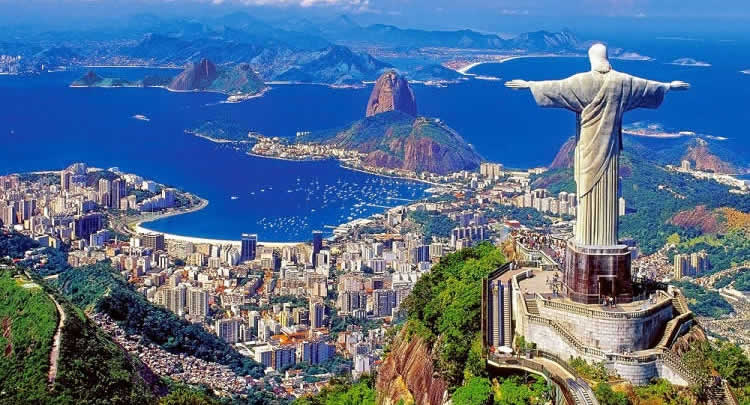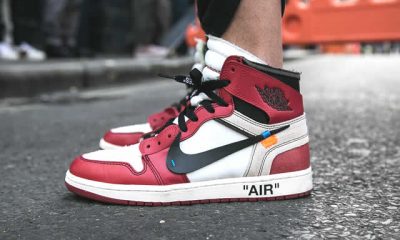Inglês online
How do you say in Portuguese?

How do you say in Portuguese?
If you are a native US English speaker, you might think that everyone else in all America outside North America speak only Spanish, but it is not true. This probably will surprise you because almost 210 millions people in South America speak Portuguese instead of Spanish.
Just the city of São Paulo for instance, the biggest city and also the financial center of Brazil is, by far, the most populated city not just of Brazil but, of whole America, incluing the cities of New York , Los Angeles and City of Mexico. The city of São Paulo has more than 12 millions native Portuguese-speakers inhabitants, what is more than the whole population of Portugal.
In the end of this article I will show you answers to more than 100 most asked questions in Google about “How do you say in Portuguese?”
The development of Portuguese language
Portuguese and Spanish are cognate languages, and share the same root language, Latin. But do not fool yourself. They are different enough to be distinctive languages, mainly in a phonetical outlook. Both Portuguese as Spanish are western Romance languages and are part of the Ibero-Romance group.
Originating in Iberia, the most widely spoken Iberian Romance languages are Castilian (Spanish), Portuguese, Catalan and Galician. These languages also have their own regional and local dialects. In addition to those languages, there is a number of Portuguese-based creole languages and Spanish-based creole languages, for instance Papiamento, in the Caribbean.
The Portuguese language developed in the Western Iberian Peninsula from Latin spoken by Roman soldiers and colonists starting in the 3rd century BC. Old Portuguese, also known as Galician-Portuguese, began to diverge from other Romance languages after the fall of the Western Roman Empire and the Germanic invasions, also known as barbarian invasions in the 5th century and started appearing in written documents around the 9th century.
By the 13th century, Galician-Portuguese had become a mature language with its own literature and began to split into two languages. In all aspects—phonology, morphology, lexicon and syntax—Portuguese is essentially the result of an organic evolution of Vulgar Latin with some influences from other languages, namely the native Galician language spoken prior to the Roman domination.
A simple way to explain the Neo-Latin languages including the Portuguese
The Romance languages (sometimes called the Romanic languages, Latin languages, or Neo-Latin languages) are the modern languages that evolved from Vulgar Latin between the 6th and 9th centuries and that thus form a branch of the Italic languages within the Indo-European language family.
I used to say that Latin is the root (or mother), whose kids are Italian (the oldest daughter), Spanish (the middle daughter) and the last but not less important of all, Portuguese, the youngest. “A última flor do Lácio” (the last flower of Lazio, an ancient central region of Italia) as written by the Brazilian poet Olavo Bilac. And the most difficult of all sisters, as usually happens with the youngest kids.
Portuguese also used to have another sister, French. However, she has married to someone rich from the North and left home when Portuguese was just a kid. Therefore, they are not in touch anymore. Funny as it seems, as a native Portuguese-speaker, I particularly think that it is easier to understand Spanish than Italian. Nevertheless, on the other hand, I think that it is easier to speak Italian than Spanish.
How did Portuguese language spread around the world?
Just for record, the population of Portugal today is about 10 million. Nevertheless, thanks to the Portuguese people longing for trades and explorations in the 15th century, today there are many countries which Portuguese is the official language. Countries or people that are Portuguese-speakers are called lusophones. Lusitania was the ancient Roman name of most western region of Iberia where Portugal is today. Therefore, “luso” is a prefix for what is related to Portugal, like customs, culture, language, etc.
Portuguese is the sole official language of Portugal, Brazil, Cape Verde, Guinea-Bissau, Mozambique, Angola, and São Tomé and Príncipe. It also has co-official language status in East Timor, Equatorial Guinea and Macau in China. Then, Portuguese language was spread all around the world and now is present in four continents: America, Europe, Africa and Asia.
Nowadays, Portuguese is one of the most spoken languages in the world. The rank now of first language speakers in the world is, off course, Mandarin (Chinese) 1st place, Spanish 2nd, English 3rd, Hindustani (India) 4th, Arabic 5th and then comes Portuguese in the 6th position.
Why does not Brazil speak Spanish?
The territory of Brazil only, occupies a half of South America continent. That was the result of a handshaking between two powerful kings of the Iberian Peninsula in the 15th century in order to split South America into two colonies after several argues about oversea lands. Eventually, the Spanish king owned western side while the eastern side became Brazil, but belonging to Portugal, as a colony. I still wonder if they rolled dice to see who was the first to choose between East and West region.
So, guess what? Because of that agreement, included among others terms in the called Treaty of Tordesillas, signed in 1494, in Paris, France, we Brazilian people speak Portuguese while the rest of Latin America speaks Spanish otherwise.
Facts about Brazil
Brazil is the biggest country of South America and is the 6th most populated country in the world, and it was until 19th century, a colony of Portugal. Brazil population is estimated in 2018 with 208,476,439 of people. Just to make a picture, China comes first (1.39 billion), India (1.33 billion) does second and USA does third (about 325 millions). As the 8th economy of the world, Brazil exports since staples like minerals, coffee, sugar, soy, cattle meat, raw petroleum up to sophisticated industrial products like cars and airplanes.
|
|
|||||||||||
| – | |||||||||||
|
Brazil is also owner of a huge and exuberant fauna and flora. Most part of Amazonia (about 60%), the biggest rain forest of the world, sometimes called the lung of the world, is inside Brazil. Our tropical weather and paradisiac beaches attracts people from all around the world. And who has never heard about “Rio de Janeiro” with its Redeemer Christ statue welcoming everyone else with opened arms, “Samba”, “Carnaval”, “Bossa Nova”, “Cachaça”, “Caipirinha”,“Capoeira”, “Feijoada” and “Pelé”? |
|||||||||||
The welcoming people of Brazil |
|||||||||||
|
The Brazilian people is a mix of several races, Europeans (Portuguese, Italian, German and Dutch people), Africans, indigenous people and Asians (especially Japanese). They are known for their joy, warm-heartedness, passion for life and for football (soccer, by the way). If US government slogan is “America for Americans”, by the other hand, our Federal Brazilian government slogan here is “Brazil, a country for everyone”. |
|||||||||||
|
|
|||||||||||
| – | |||||||||||
|
With a rich culture, full of color and rhythm, you will not find another people with more willingness for party. If you spend just a few days in Brazil, you likely will be hugged and kissed more than ever before in your whole life. Whether your mom/dad, wife/husband, girlfriend/boyfriend, children or whoever is the most fondling person of your loving ones will never get even closer to what happens here. |
|||||||||||
|
And that’s for sure, with a so huge cooking pot from everywhere cuisine bubbling, you will find no other place to eat better than here. Moreover, because our miscegenation (mix of races), in Brazil you will see the most beautiful “mulatas” of the world. Mulatto is a person who is both Negro (black skin) and Caucasian (white skin). |
|||||||||||
|
|
|||||||||||
| – | |||||||||||
What about to know how to speak some words in Portuguese? Below I bring a list of more than 100 searched asked questions in Google about words and phrases in Portuguese:
More than 100 questions most asked in Google about Portuguese language |
|||||||||||
How to say what’s up in Portuguese?“E aí?” How to say thank you in Brazilian Portuguese?“Obrigado”, “Valeu” (slang). How to say “How are you?” in Portuguese?“Tudo bom?”, “Tudo bem?”, “Como vai?” or a combo of all this, no matter the order. How to say hi in Portuguese?“Oi”, “Olá”. How to say words in Portuguese?“Palavras”. How to say I love you in Portuguese?“Te amo”. How to say hello in Portuguese?“Oi” or “olá” as a greeting and “Alô” on the telephone. How to say thank you in Portuguese?“Obrigado.” How to say good morning in Portuguese?“Bom dia”. How to say goodbye in Portuguese?“Tchau”, “Adeus”. How to say I miss you in Portuguese?“Estou com saudades de você”. Or literally “Eu sinto a sua falta”. How to say no in Portuguese?“Não”. How to say yes in Portuguese?“Sim”. How to say bye in Portuguese?“Tchau”. How to say goodnight in Portuguese?“Boa noite”. How to say I love you in Brazilian Portuguese?“Te amo”. How to say sorry in Portuguese?“Desculpe”. “Foi mal” (slang). How to say beautiful in Portuguese?“Linda”, “Bonita”. “Gata” slang for female and “Gato” slang for male. “Gato” means cat. How to say please in Portuguese?“Por favor”. How to say my name is in Portuguese?“Meu nome é …” Some names can be translated. For instance, John, “João”. Joseph, “José’”. David, “Davi”. Andrew, “André”. Paul, “Paul”. “Charles”, Carlos. “James”, Tiago. “William”, Guilherme. Gilbert, “Gilberto”. Oswald, “Osvaldo”. Peter, “Pedro”. Mary, “Maria”. Anne, “Ana”. Elizabeth, “Elisabete”. “Ronald”, Ronaldo, etc. Many names has no translation. How to say hello in Brazilian Portuguese?“Oi”, “Olá” as greeting and “Alô” on the telephone. How to say welcome in Portuguese?“Bem-vindo”. How to say good afternoon in Portuguese?“Boa tarde”. How to say shut up in Portuguese?“Cale a boca”. How to say you’re welcome in Portuguese?“Bem-vindo”. How to say Portuguese in Portuguese?“Português”. How to say good in Portuguese?“Bom” for male and “Boa” for female. In Portuguese adjectives have gender. For instance, “He is a good boy” (Ele é um bom menino). “She is a good girl.” (Ela é uma boa menina). How to say you are beautiful in Portuguese?“Você é bonita” for female and “Você é bonito” for male. How to say thanks in Portuguese?“Obrigado”. How to say “Hello, how are you?” in Portuguese?“Oi, tudo bom?”, “Olá, tudo bem?”, “Olá, Como vai?” or a combo of all this, no matter the order. How to say “Do you speak English?” in Portuguese?“Você fala inglês?” How to say ok in Portuguese?“Ok”, “tudo ok”, “tudo certo”, “tudo bem”. How to say love in Portuguese?“Amor”. How to say my love in Portuguese?“Meu amor”. How to say good evening in Portuguese?“Boa noite”. How to say hi in Brazilian Portuguese?“Oi”, “Olá” and “E aí, beleza?” (slang). How to say friend in Portuguese?“Amigo”. How to say “I love u” in Portuguese?“Te amo”. How to say “What are you doing?” in Portuguese?“O que você está fazendo?” How to say language in Portuguese?“Idioma” or “língua”. “Língua”means literally tongue, but can be used as synonym of language. How to say you in Portuguese?“Você” and “Tu”. How to say Brazil in Portuguese?“Brasil”. How to say thank you very much in Portuguese?“Muito obrigado” or “muitíssimo obrigado”. How to say “Hi, how are you?” in Portuguese?“Oi, tudo bom?”, “Olá, tudo bem?”, “Olá, como vai?” or a combo of all this, no matter the order. How to say I like you in Portuguese?“Eu gosto de você”. The pronoun “Eu” is not mandatory because “gosto” is a verb conjugation used only for the first person “I”, so “Gosto de você” also fits. How to say Portugal in Portuguese?“Portugal”, there is no change. How to say “What is your name?” in Portuguese?“Qual é o seu nome?” or “Como você se chama?” How to say good day in Portuguese?“Tenha um bom dia” (Have a nice day). How to say hey in Portuguese?“Ei”. How to say and in Portuguese?“E”. How to say school in Portuguese?“Escola”. How to say excuse me in Portuguese?“Desculpe-me” to apologize and “com licença” when someone else is in your way. How to say nice to meet you in Portuguese?“Foi um prazer conhecê-lo” for male. “Foi um prazer conhecê-la” for female. How to say girl in Portuguese?“Garota”, “Menina”. “Mina” (slang). How to say cool in Portuguese?“Frio” literally as opposite to “warm” and “Legal” as slang. How to say why in Portuguese?“Por que”. How to say good night in Portuguese?“Boa noite”. How to say one in Portuguese?“Um”. How to say my name is in Portuguese? Translation“Meu nome é …” Some names can be translated. For instance, John, “João”. Joseph, “José’”. David, “Davi”. Andrew, “André”. Paul, “Paul”. “Charles”, Carlos. “James”, Tiago. “William”, Guilherme. Gilbert, “Gilberto”. Oswald, “Osvaldo”. Peter, “Pedro”. Mary, “Maria”. Anne, “Ana”. Elizabeth, “Elisabete”. “Ronald”, Ronaldo, etc. Many names has no translation. How to say hello my name is in Portuguese?“Olá, meu nome é …” or “Oi, meu nome é …” How to say very good in Portuguese?“Muito bom” or “Muito bem”. How to say good morning in Brazilian Portuguese?“Bom dia”. How to say English in Portuguese?“Inglês”. How to say “Do you speak Portuguese?” in Portuguese?“Você fala português?” or “Tu falas português?” How to say you are welcome in Portuguese?“Bem-vindo”. How to say “What’s your name?” in Portuguese?“Qual é o seu nome?” or “Como você se chama?” How to say see you later in Portuguese?“Até mais”, “Até logo” or “Até mais tarde”. How to say hello beautiful in Brazilian Portuguese?“Oi, linda” for female or “Oi, lindo” for male. How to say “How old are you” in Portuguese?“Quantos anos você tem?” How to say go Portugal in Portuguese?“Vai Portugal”.How to say “How are you?” in Brazilian Portuguese?“Como vai?”, “Tubo bem?” or “E aí, beleza?” How to say “How much?” in Portuguese?“Quanto?” How to say hello in Portuguese? Portugal“Olá” or “Oi” as a greeting and “Alô” on the telephone. How to say boy in Portuguese?“Menino”, “Garoto”, “Rapaz”. How to say nice in Portuguese?“Legal”, “Bom”, “Bonito”. How do you say “nice to meet you” in Portuguese?“Foi um prazer conhecê-lo” for male. “Foi um prazer conhecê-la” for female. How to say I am in Portuguese?“Eu sou” or “Eu estou”. How to say awesome in Portuguese?“Incrível”, “legal”. How to say name in Portuguese?“Nome”. How to say go in Portuguese?“Ir”. Imperative form “Vá” or “vai”. How to say family in Portuguese?“Família”. How to say hello beautiful in Portuguese?“Oi, linda” for female or “Oi, lindo” for male. How to say “How are you doing?” in Portuguese?“Como vai?” How to say my in Portuguese?“Meu”. How to say eat in Portuguese?“Comer”. How to say goodnight in Portuguese? Brazil“Boa noite”. How to say but in Portuguese?“Mas” or “Porém”. How to say great in Portuguese?“Ótimo”, “muto bom”. How to say two in Portuguese?“Dois”. How to say you look beautiful in Portuguese?“Você está linda” for female. And “você está lindo.” for male. How to say I love you in Portuguese? Language“Te amo”. How to say see you soon in Portuguese?“Até logo.” How to say I want you in Portuguese?“Te quero”. How to say come in Portuguese?“Vir”. Imperative form “Vem” ou “venha”. How to say my friend in Brazilian Portuguese?“Meu amigo”. How to say have a nice day in Portuguese?“Tenha um bom dia”. How to say I speak english in Portuguese?“Eu falo inglês”. How to say I am fine in Portuguese?“Eu estou bem”. How to say “I speak Portuguese” in Portuguese?“Eu falo português.” How to say yes in Brazilian Portuguese?“Sim”. How to say your in Portuguese?“Teu” if you use the pronoum “tu” or “Seu” if you use the pronoun “você”. How to say happy in Portuguese?“Feliz”. How to say help in Portuguese?“Socorro” or “ajuda”. How to say go Brazil in Portuguese?“Vai Brasil”. How to say I know in Portuguese?“Eu sei”. How to say something in Portuguese?“Alguma coisa” or “algo”. How to say what’s up in Brazilian Portuguese?“E aí?” or “O que está pegando?” (slang) How to say what time is it in Portuguese?“Que horas são?” How to say “Hi, my name is …” in Portuguese?“Oi, meu nome é …” How to say thank u in Portuguese?“Obrigado.” No in Portuguese, how to say?“Não”. How to say morning in Portuguese?Only morning is “manhã”. Good morning is “bom dia”. How to say where in Portuguese?“Onde”. How to say “Where are you from?” in Portuguese?“De onde você é?” or “De onde tu és?” How to say bad in Portuguese?“Ruim” or “mau”. How to say things in Portuguese?“Coisas”. How to say also in Portuguese?“Também”. |
































